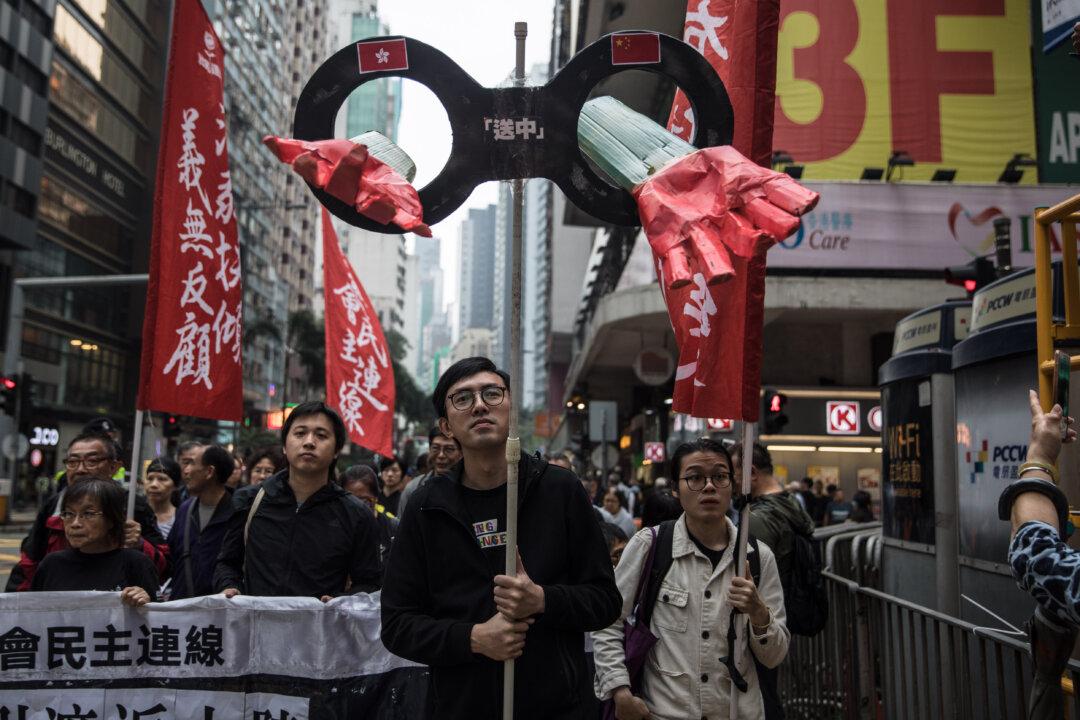Organized by the Civil Human Rights Front, a Hong Kong pro-democracy group, the parade is the second citywide protest within a month.
Latest Amendments
Currently, Hong Kong has signed individual extradition agreement with 20 countries, including the United States, Canada, the UK, Australia, and New Zealand.An extradition request also must be approved by the Legislative Council, Hong Kong’s unicameral legislature.
Hong Kong’s Security Bureau first announced plans to amend the Fugitive Offenders Ordinance and the Mutual Legal Assistance in Criminal Matters Ordinance on Feb. 13.
The amendments would allow criminal suspects from any region—including mainland China—to seek extradition without the Legislative Council signing off on the requests. The city’s head of government, the chief executive, would be able to approve the extradition requests directly.
The Legislative Council will vote on the amendments, which city authorities hope to finalize by the second half of the year.
The government has said the proposed changes are aimed to plug a loophole exposed by a Taiwan murder case.
Taiwan police found Poon’s body in Taipei City in March 2018 and have pursued Chan as the main suspect in Poon’s murder. But Chan remains in Hong Kong, as there is no extradition agreement between Hong Kong and Taiwan.
In Hong Kong court, Chan pleaded guilty to four counts of money laundering by withdrawing cash from Poon’s account on April 12 and is awaiting his sentencing.
“It is a political task that the [Beijing] central government has commanded Carrie Lam, the chief executive, to do,” said the insider, who wished to remain anonymous.
The insider outlined four reasons why the Chinese regime wants the extradition laws changed: as a measure to response changes in U.S. policy toward China; to target and charge groups that the Chinese regime deems “hostile forces”; force mainland Chinese activists who have sought refuge in Hong Kong and strongly oppose the Chinese Communist Party to leave the city; and threaten Hong Kong pro-democracy activists into taking a more “moderate” route.
Pro-democracy groups have sought universal suffrage for local elections and called for formal independence from mainland China, a sore point for Beijing.
People’s Protest
On March 31, roughly 12,000 Hong Kongers paraded in the streets to oppose the extradition amendments. At a rally, participants called it “the most vicious law in [Hong Kong’s] history.”Joseph Zen, a cardinal of the Catholic Church, led the protest chants during the parade: “Extraditing fugitives to mainland China will turn Hong Kong into a black jail.”
Claudia Mo, a Hong Kong politician, said during a rally after the parade that the amendments would “make everybody feel risky,” expressing concerns that suspects could be arrested secretly and sent to China without due process.





